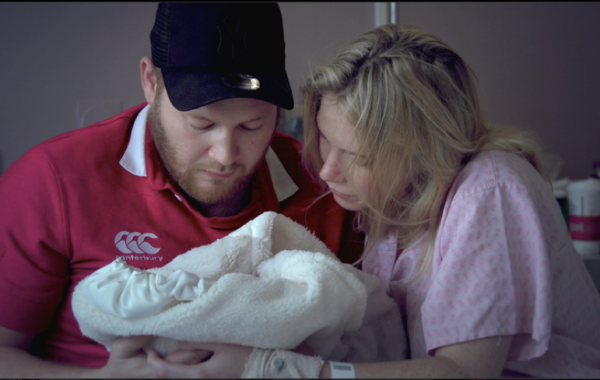Involved fatherhood is critical to gender equality and child development, reveals world’s first global fatherhood report
Gender equality requires a revolution in the lives of men and boys, and achieving this requires urgent policy changes, MenCare-authored report argues in worldwide launch
Targeting fathers is the key to achieving gender equality. Fathers matter deeply to child development, and they are as biologically hard-wired to provide care as mothers are. Furthermore, fathers with close connections to their children live longer, have fewer health problems, and are more productive and generally happier: these are among the key findings of the first-ever State of the World’s Fathers (SOWF) report, a landmark analysis of fatherhood that draws evidence from hundreds of studies covering all countries in the world with available data.
As much of the world turns to celebrate the role of fathers this Sunday, the SOWF report reveals long-lasting disparities. Women continue to spend between 2 to 10 times longer than men caring for a child (or older person). These inequalities persist despite the fact that women today make up 40% of the formal global workforce and 50% of the world’s food producers. While it is increasing, men’s unpaid caregiving has not kept pace with women’s participation in the labor force.
In fact, there is no country in the world where men and boys share the unpaid domestic and care work equally with women and girls. This imbalance has widespread negative effects. It hurts men, women, and children. Women lose opportunities for work and income, and girls are often held back from educational opportunities, which exacerbates gender inequality and gendered poverty. Boys and girls lose out on the benefits of having an involved father, and men miss out on the connections and closeness that fatherhood can offer. Even economies suffer. If women were able to participate in the labor market at the same rates as men do, the gross domestic product (GDP) would increase in the United States by as much as 5%, in Japan by 9%, in the United Arab Emirates by 12%, and in Egypt by 34%.
The report reveals that a lack of supportive policies, particularly paternity leave for new fathers, is part of the problem. Between 61 and 77% of fathers say they would work less if it meant that they could have more time with their children. However, although maternity leave is now offered in nearly all countries, only 92 countries offer leave that can be taken by new fathers; for half of these, the leave is less than three weeks. Iceland, which seems to be the world champion in men’s use of paternity leave, sees men averaging 103 days of paid leave, but it is still only a third of what women take. Leave policies for fathers, when well designed, have the potential to transform gender relations at home, at work, and in society at large. In the United Kingdom, fathers who took leave after birth were 19% more likely to participate in feedings and to get up with the baby at night 8 to 12 months later, as compared with fathers who did not take leave. A study from Sweden showed that every month that fathers took paternity leave increased the mother’s income by 6.7%, as measured 4 years later, which was more than she lost by taking parental leave herself. Indeed, no other policy change has proven as effective as paid, non-transferable leave for fathers in terms of increasing men’s participation in caregiving.
The report argues that gender equality will not be achieved unless men are engaged in the care of their children and families, a subject “virtually invisible in public policies and in public discourse.” According to the report, more information about the benefits of fatherhood for both men and their families – specifically, research on what children need to thrive – is urgently needed and could prove instrumental in guiding effective policy changes.
Around 80% of the world’s men and boys will become fathers in their lifetime, and virtually all men have at least some connection to children in caregiving relationships. This may be in an extended family or a nuclear one, with parents living together or not, in a same sex relationship or a heterosexual one. Despite this, engaging men in caregiving is only just beginning to find its way onto the global gender equality agenda.
Published by MenCare, a global fatherhood campaign, the State of the World’s Fathers report is intended to provide a periodic, data-driven snapshot of the state of men’s contributions to parenting and caregiving globally by addressing four issues related to fatherhood: unpaid care work in the home; sexual and reproductive health and rights and maternal, newborn, and child health; men’s caregiving and violence against children and women; and child development.
“This first State of the World’s Fathers report reaffirms that fathers matter for children and that caregiving is good for fathers,” says Gary Barker, SOWF report author and International Director, Promundo, “and with it we want to begin to lay the groundwork to influence future policy and programs around the world that address the current lack of men’s and boys’ equitable participation in caregiving, and that address rigid ideas about gender – and the harm that these issues bring to women, to children, and to men themselves. Gender equality requires a revolution in the lives of men and boys, including their full participation in domestic life.”
Download the full SOWF report here
MenCare is coordinated globally by Promundo and Sonke Gender Justice and jointly steered by Save the Children, Rutgers, and the MenEngage Alliance.
Featured Work

Zak Ové
View Details
TIME’S UP UK
View Details
Channel 4
View Details



